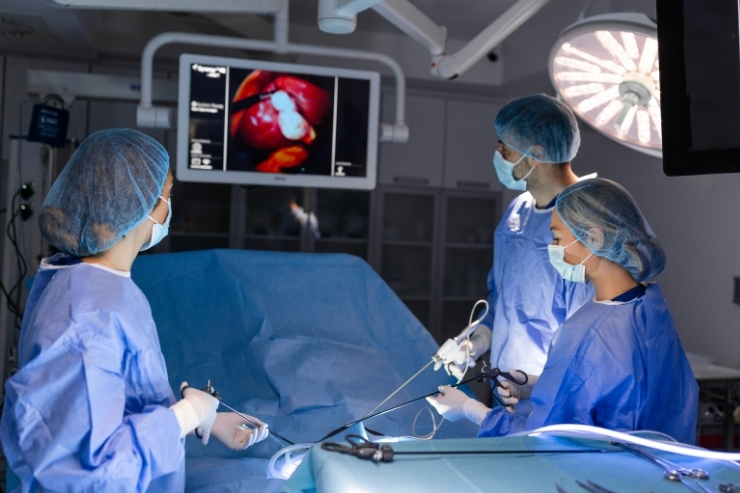Obstetrics & Gynecology

Infertility Evaluation & Treatment (IUI/IVF Support)
Infertility can affect couples physically and emotionally. A thorough evaluation includes hormonal testing, ovulation tracking, semen analysis, and imaging (like pelvic ultrasounds) to detect underlying causes. Treatments range from lifestyle changes and medications to advanced techniques like IUI (Intrauterine Insemination) and IVF (In Vitro Fertilization). IUI helps by placing washed sperm directly into the uterus, while IVF fertilizes eggs outside the body before implantation. Counseling, emotional support, and personalized protocols improve success rates. Early assessment enhances outcomes and brings couples closer to their dream of parenthood. A balanced approach combining technology and empathy ensures safe, ethical, and hopeful fertility care.
Antenatal & Postnatal Pregnancy Care
Comprehensive maternity care is vital for the health of both mother and baby. Antenatal care includes regular check-ups, ultrasound scans, blood tests, and nutritional counseling to monitor fetal development and identify complications early. Conditions like gestational diabetes, anemia, and high blood pressure are closely managed. After delivery, postnatal care focuses on recovery, lactation support, emotional well-being, and newborn care guidance. Supportive care during this time ensures safe delivery, faster recovery, and reduced risk of postpartum issues. A structured pregnancy care plan builds confidence, promotes bonding, and ensures a healthy start to life—for both the mother and the baby.


Laparoscopic Surgery (Fibroids, Cysts, Hysterectomy)
Laparoscopic gynecological surgery is a minimally invasive procedure that uses tiny incisions and a camera for diagnosis and treatment. Common conditions treated include fibroids, ovarian cysts, endometriosis, and uterine prolapse. Procedures like laparoscopic hysterectomy offer faster recovery, minimal scarring, and less post-operative pain. It allows patients to return to normal activities quickly while reducing surgical risks. Precision instruments enhance the safety and success of each operation. Ideal for women seeking effective treatment with minimal disruption, laparoscopic surgery is a modern solution for many gynecological issues and is now considered the gold standard in women’s surgical care.
PCOS & Menstrual Disorder Management
Polycystic Ovary Syndrome (PCOS) and menstrual disorders can cause irregular periods, acne, weight gain, infertility, and hormonal imbalances. Early diagnosis is key and includes blood tests, pelvic ultrasounds, and hormonal assessments. Treatment options include dietary modifications, exercise, hormonal therapy, and medications for ovulation induction. Managing PCOS also helps reduce risks of diabetes, heart disease, and endometrial issues. Menstrual disorders like heavy bleeding, amenorrhea (missed periods), and dysmenorrhea (painful periods) are treated with personalized plans. Restoring hormonal balance improves overall health, fertility, and quality of life. Regular monitoring, patient education, and holistic approaches ensure long-term success and well-being.


Fibroid Uterus Diagnosis & Treatment
Uterine fibroids are non-cancerous growths that develop in or on the uterus, often causing heavy bleeding, pelvic pain, frequent urination, and fertility issues. Diagnosis is made through ultrasound or MRI scans, allowing precise evaluation of fibroid size and location. Treatment varies depending on symptoms and includes medications, hormone therapy, uterine artery embolization, or surgical options like myomectomy or hysterectomy. Minimally invasive techniques such as laparoscopy offer faster recovery and minimal scarring. Early detection and customized care plans prevent complications and preserve reproductive health. Effective management relieves symptoms, improves comfort, and enhances the chances of a healthy, active life.
